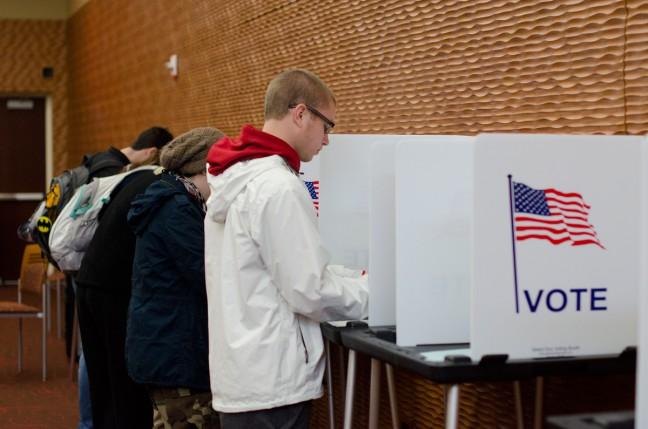Wisconsin’s voter ID law will likely be in effect this November after a federal appeals court panel reinstated Friday the law requiring that voters show a photo ID at elections.
The law had been on hold since 2012, facing legal challenges in federal and state courts, where judges had blocked the law from being implemented. But the law cleared legal challenges at the state level in July, and Friday afternoon, a three-judge appellate panel removed a federal judge’s block on the law, saying the state could implement the law in the November 2014 elections.
“Today’s decision is a victory for common sense, fair elections and the right of every eligible voter to cast a vote that will count,” Republican Attorney General J.B. Van Hollen said in a statement. “This ruling vindicates the law and our efforts to ensure the policy of this state will be in effect for November’s election.”
The federal appeals court panel ruled a few hours after hearing oral arguments on the law in Chicago, where they seemed skeptical of the challenges against the voter ID law. The panel removed U.S. District Court Judge Lynn Adelmann’s block, or injunction, on the law while it considers whether to uphold or strike down the law.
The three judges on the federal appeals court — all Republican appointees — noted when the state Supreme Court upheld the law, it crafted a “savings construction” that removed concerns that the law would be unfair to the elderly and minorities.
The court’s fix, the panel noted, eases the process for those who do not have a birth certificate or other documents needed to get a photo ID from the state.
“This reduces the likelihood of irreparable injury, and it also changes the balance of equities and thus the propriety of federal injunctive relief,” the panel wrote. “The panel has concluded that the state’s probability of success on the merits of this appeal is sufficiently great that the state should be allowed to implement its law, pending further order of this court.”
Reid Magney, a spokesperson for the non-partisan Government Accountability Board that oversees elections, said the agency is “taking every step to fully implement the voter photo ID law for the November General Election.”
While Republicans like Gov. Scott Walker praised the ruling, the American Civil Liberties Union, which argued against the law in court, raised concerns that the decision will cause chaos since it came so close to an election.
Chris Ahmuty, executive director of ACLU of Wisconsin, said the state may not be ready to implement these changes by November, pointing out the absentee ballots that have already been sent out with no clear instructions regarding voter ID.
“The new procedures were presented at the last second, and it is unclear whether or how they will work in time to ensure that eligible voters are actually able to vote,” Ahmuty said. “It has not demonstrated how it will train 1,852 municipal clerks and tens of thousands of poll workers, as well as notifying voters of the new rules.”
The appeals court order creates a “huge hindrance for students,” especially those from out-of-state, said Nneka Akubeze, executive director of the United Council of UW students.
Akubeze said since many out-of-state students are legally permitted to vote in Wisconsin, requiring this portion of the student body to have a state-issued ID “is something that really disenfranchises students.”


